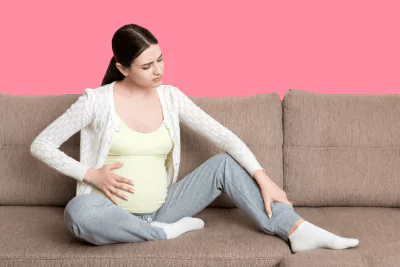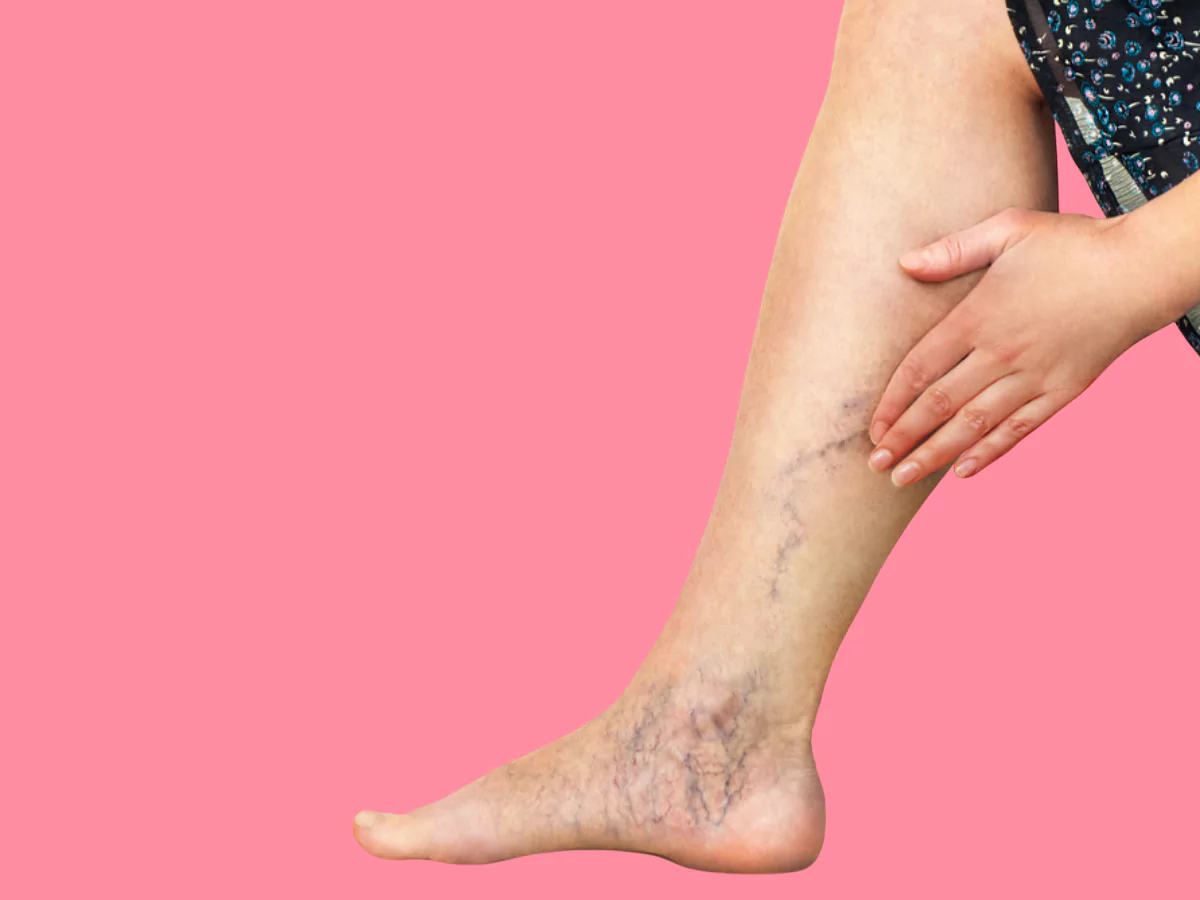Varicose veins are a common problem that may increase during pregnancy. Some women experience bulging and protruding veins, especially in the legs.
What are varicose veins?
Varicose veins are abnormally enlarged and swollen veins due to weak vein walls or damaged valves. This causes blood to pool and become prominent under the skin.
Why do varicose veins increase during pregnancy?
During pregnancy, a woman's circulation undergoes direct changes. These changes increase the likelihood of varicose veins, such as:
- Increased blood volume to support the growing fetus.
- The growing uterus presses on the veins in the pelvis and legs.
- Hormonal changes that cause the walls of blood vessels to relax.
Symptoms of varicose veins during pregnancy

Several distinct signs that a pregnant woman can easily notice include:
- Protruding blue or purple veins under the skin.
- A feeling of heaviness or pain in the legs.
- Swelling of the ankles or feet.
- Itching or nighttime muscle cramps.
Are varicose veins during pregnancy dangerous?
In most cases, varicose veins do not pose a significant risk to the mother or fetus, but they can cause discomfort and interfere with comfort. They rarely lead to complications such as blood clots.
Methods for Relieving Varicose Veins During Pregnancy
Some simple tips can be followed to reduce the severity of symptoms and improve blood circulation, including:
- Elevate your legs when sitting or lying down.
- Do light physical activity, such as walking.
- Wear medical compression stockings.
- Avoid prolonged standing or sitting.
- Sleep on your left side to relieve pressure on the veins.
Methods for Treating Varicose Veins

There are several methods for treating varicose veins, and the appropriate method depends on the severity of the condition and associated symptoms. These include:
- Compression stockings to improve blood flow and reduce swelling.
- Lifestyle changes, such as exercise and leg elevation.
- Medications to strengthen the veins and relieve symptoms under a doctor's supervision.
- Laser treatment or injections to close the affected veins.
- Surgery in advanced cases to remove or ligate the vein.
Do varicose veins disappear after childbirth?
In many cases, varicose veins gradually improve after childbirth, especially if they were not present before pregnancy. However, in some cases, they may persist or require medical treatment later.
Can varicose veins be treated without surgery?
Yes, conservative treatments such as compression stockings, laser, or injections in mild cases are possible.
Does obesity cause varicose veins?
Yes, being overweight puts pressure on the veins and increases the chance of varicose veins appearing.
Does exercise benefit varicose vein patients?
Certainly. Light exercise such as walking and swimming improves circulation and relieves symptoms.
A summary of varicose veins, their relationship to pregnancy, and treatment methods
Varicose veins are a common problem during pregnancy, and are often temporary and harmless.
A healthy lifestyle and adhering to your doctor's instructions can help reduce symptoms and improve circulation until delivery.